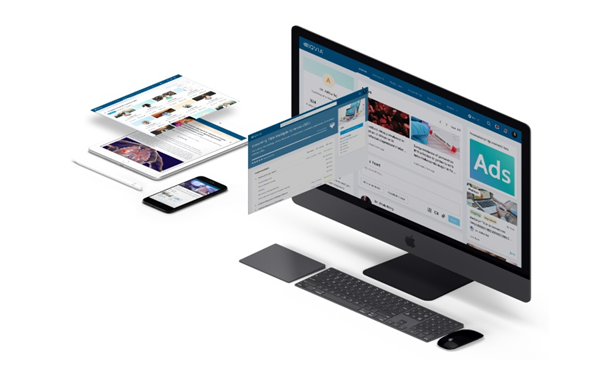Automate and standardize your regulatory management, from correspondence and commitments to registration and tracking.


































- Locations
- Middle East & Africa
- Digital transformation in the pharmaceutical industry – The transition to paperless e-labeling
E-labeling, or the utilization of digital labels on packaging, has gained significant popularity in the Middle East. This trend has emerged in response to various regulations and guidance provided by prominent regulatory bodies such as the European Medicine Agency (EMA), the Food and Drug Administration (FDA), and several other stringent regulatory authorities. While the implementation of e-labeling regulations in countries like Saudi Arabia, the UAE, Bahrain, and Egypt is actively encouraged, it is important to note that they have not yet been enforced.
One of the main benefits of e-labeling is its potential to reduce waste and promote sustainability, as traditional labels are often difficult to recycle. E-labeling uses digital technology to display information on a screen or other electronic devices. Other benefits of e-labeling include enhanced precision, traceability, consistency, quicker label production, and greater flexibility in label design. Additionally, it has the potential to lower production and shipping costs, and it could also improve the experience and accessibility for elderly or visually impaired patients if the feature of "audible e-labeling" were to be considered. The use of e-labels enables companies to promptly update medication safety information upon receiving regulatory approvals, providing assurance to both patients and healthcare providers.
However, there are also some potential drawbacks to implementing e-labeling regulations. For example, there may be additional costs associated with implementing the necessary technology and infrastructure. There may also be concerns about the security of the information displayed on e-labels, as well as potential issues with compatibility with different devices and platforms.
The estimated timeline for the implementation of e-labeling regulations in the Middle East varies from one country to another. It is likely that the rollout of these regulations will occur gradually over several years, allowing industry stakeholders ample time to adjust to the new requirements. However, there are some challenges associated with this transition. One significant challenge pertains to regulatory issues. Many companies see the potential benefits of using a common packaging component for the entire Middle East region. This approach would facilitate flexible stock reallocation and reduce the cost of goods. Nevertheless, regulatory authorities have not yet reached a consensus on a unified methodology for implementation across different countries. Another challenge relates to the hosting of the electronic labeling version. Questions arise as to whether it should be managed by individual companies or regulatory authorities. There is uncertainty about whether each company will have its own portal. If so, the practical issue of how a single barcode can be used to access the correct portal in each country needs to be addressed.
Overall, the implementation of e-labeling regulations in the Middle East holds the potential for promoting sustainability and other benefits, such as enhanced accuracy and consistency. While there may be some challenges associated with implementing e-labeling, the benefits are likely to outweigh the costs overall. Many leading pharma companies do outsource e-labeling projects in Europe and North America to service providers to take advantage of the benefits offered. But some internal capability is still maintained to ensure oversight and future flexibility.
Case study: Harmonizing Labeling and Paperless Transition in Middle East Markets
A medium sized EU-based pharma company was seeking to harmonize the labeling and artwork across 15+ countries in the Middle East. The company was also seeking to shift to paperless labeling in Saudi Arabia, United Arab Emirates, Egypt, and Bahrain. This case study presents the journey of an innovative pharmaceutical company navigating the complexities of adopting e-labeling regulations in the Middle East and how IQVIA played a pivotal role in providing strategic guidance, technological solutions, and regulatory expertise to facilitate a seamless transition.
The company faced several challenges in transitioning to e-labeling:
- Regulatory Complexity: Navigating varying e-labeling regulations and requirements across different Middle Eastern countries posed a significant challenge. Pilot trials have started only in a few countries.
- Technological Infrastructure: Ensuring the company's existing technological infrastructure could support the transition to e-labeling without disrupting operations.
- Stakeholder Alignment: Coordinating with local health authorities, distributors, and healthcare professionals to ensure buy-in and collaboration.
IQVIA played a vital role in facilitating the successful implementation of e-labeling in the Middle East by providing the following support:
- Regulatory Expertise: Leveraging IQVIA's deep regulatory knowledge and understanding of the Middle East's healthcare landscape to navigate complex e-labeling regulations.
- Technology Integration: Collaborating with the company's IT team to integrate e-labeling solutions seamlessly into the existing technological infrastructure.
- Localization: Ensuring accurate translation and localization of e-labels to address linguistics and languages while complying with regional regulations.
- Stakeholder Engagement: Facilitating discussions and workshops with local health authorities, distributors, and healthcare professionals to ensure alignment and understanding of the e-labeling process.
- Training and Education: Offering comprehensive training to internal teams on e-labeling regulations, processes, and best practices.
Through IQVIA's support, the company managed to navigate regulatory intricacies and successfully transition to e-labeling in in Saudi Arabia, United Arab Emirates, Egypt, and Bahrain. The company achieved compliance with regional regulations, harmonized e-labeling strategies, and implemented technology-driven solutions that streamlined operations. IQVIA's expertise, support, and strategic guidance played a pivotal role in transforming regulatory challenges into opportunities for growth and innovation.
For more details on IQVIA labeling compliance solutions please visit:
Related solutions
Meet the challenge of changing stakeholder demands and increasing cost constraints with IQVIA's integrated technology services and analytics-driven offerings.
